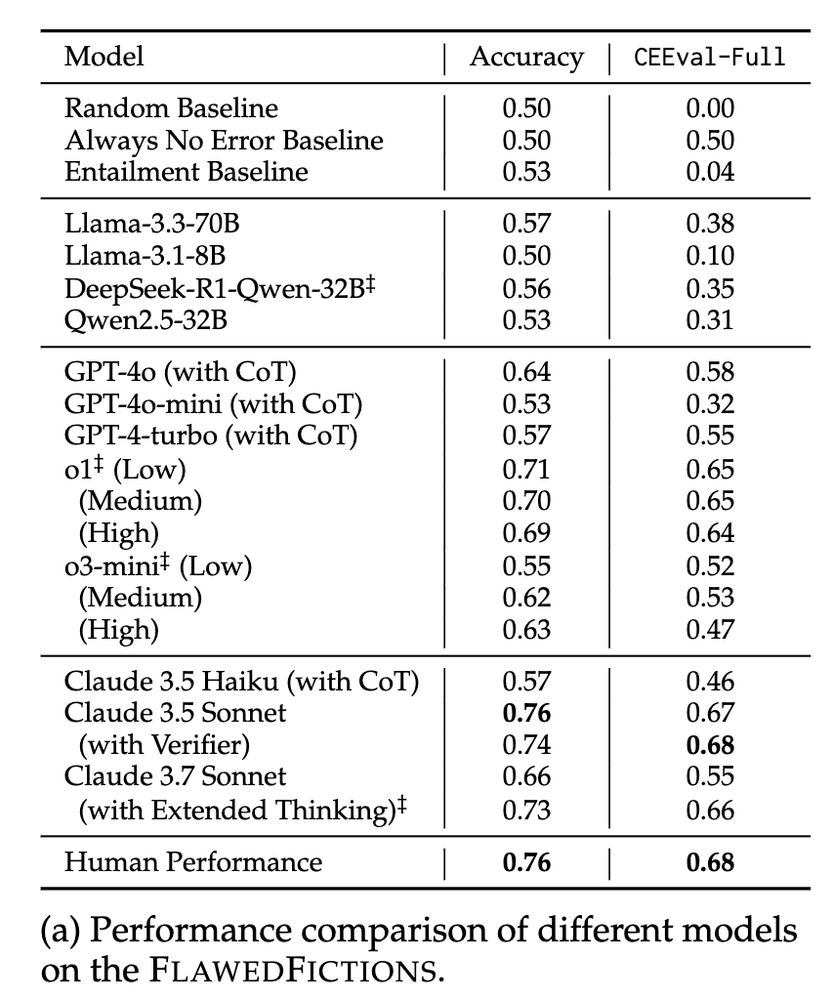We welcome any feedback and questions -- don't hesitate to reach out!
16/16

We welcome any feedback and questions -- don't hesitate to reach out!
16/16
13/n

13/n
12/n

12/n
- Misinterpret character motivations
- Incorrectly track entity states
- Miss genre conventions (especially in fantasy)
- Misinterpret story rules Examples 👇🏻
10/n




- Misinterpret character motivations
- Incorrectly track entity states
- Miss genre conventions (especially in fantasy)
- Misinterpret story rules Examples 👇🏻
10/n
9/n


9/n
8/n

8/n
7/n

7/n
5/n

5/n
E.g. If Watson has a left arm injury, we edit it to become a knee injury in later mentions.
4/n

E.g. If Watson has a left arm injury, we edit it to become a knee injury in later mentions.
4/n
Tired 😴 of reasoning benchmarks full of math & code? In our work we consider the problem of reasoning for plot holes in stories -- inconsistencies in a storyline that break the internal logic or rules of a story’s world 🌎
W @melaniesclar.bsky.social, and @tsvetshop.bsky.social
1/n

Tired 😴 of reasoning benchmarks full of math & code? In our work we consider the problem of reasoning for plot holes in stories -- inconsistencies in a storyline that break the internal logic or rules of a story’s world 🌎
W @melaniesclar.bsky.social, and @tsvetshop.bsky.social
1/n

